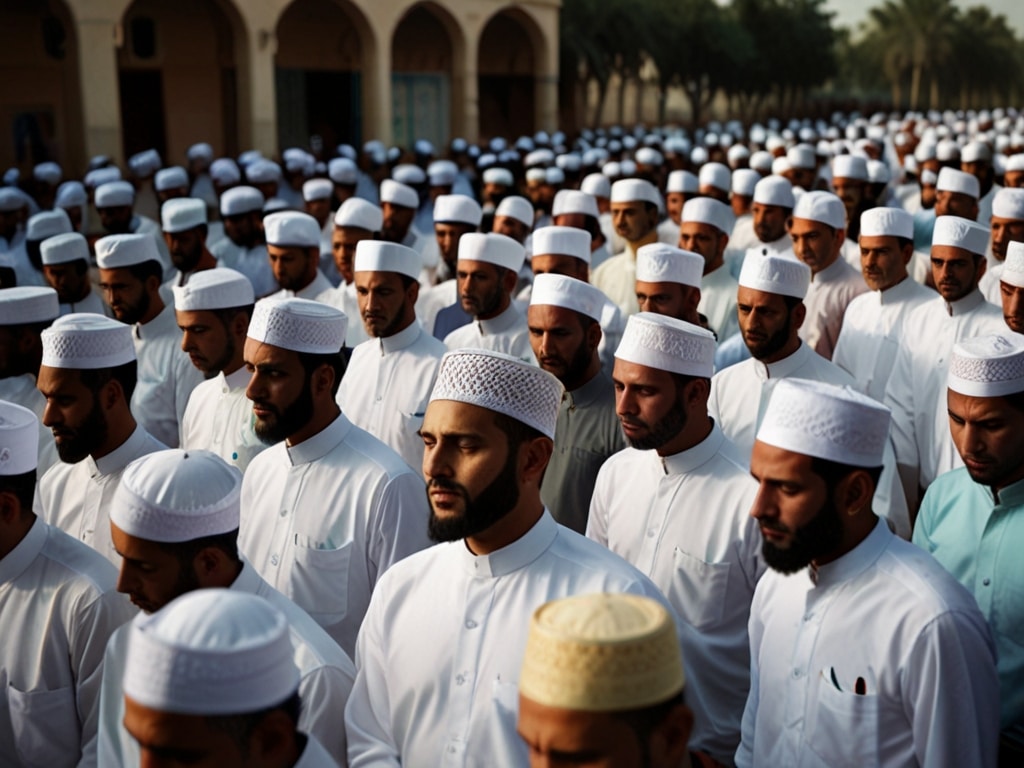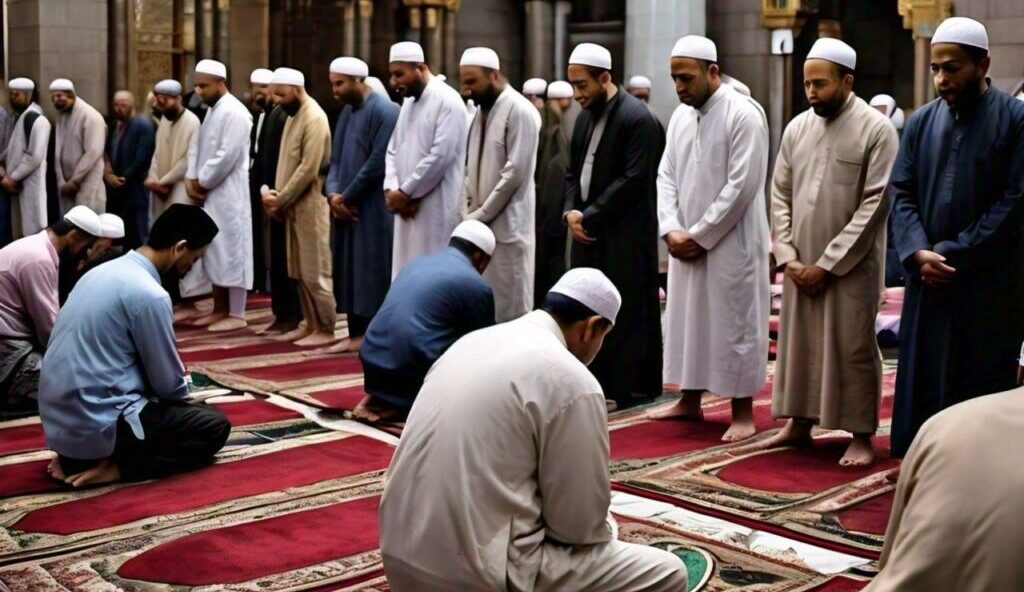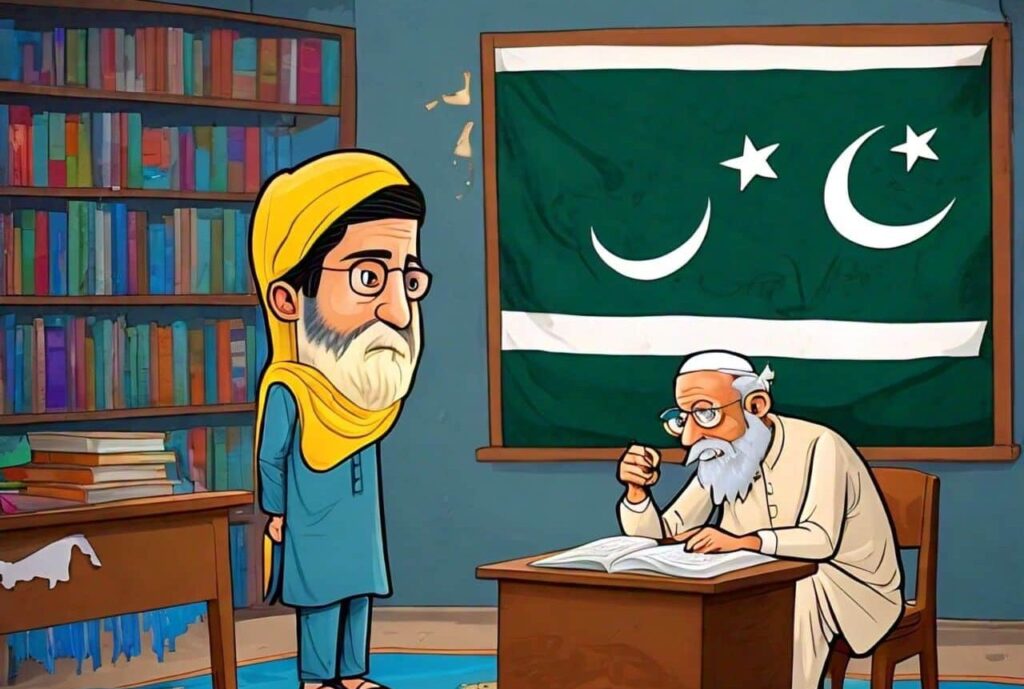In 2015, Imam-e-Kaaba Sheikh Khalid al-Ghamidi visited Pakistan and led Salat-e-Juma (Friday prayer) in different cities. Imam-e-Kaaba commenced the prayer system while leading the Friday prayer in Faisal Mosque Islamabad, Pakistan. On this occasion, it was decided that the Call to prayer (Azaan) and holding prayer congregations at all Mosques of the capital city Islamabad would be the same irrespective of the sect, which led to fostering a uniform prayer system. The committee that made the decision included two clerics from each major sect in the capital; Shia, Barelvi, Deobandi, and Ahle Hadith that concluded to implement uniform timings of prayer in Islamabad and nearby areas from 1st May 2015, whereas the procedure will also be put into practice in the whole country henceforth. It was decided by the mutual consultation of different religious scholars and the Ministry of Religious Affairs headed by Federal Minister Sardar Muhammad Yousaf. A major problem in setting prayer timings was at Maghrib (after-sunset prayer), and the issue was resolved harmoniously by committee members.
Response to Prayer System
Though the prayer system has been widely accepted, its success is still being questioned. Mix responses were given on this issue some believe that it is the pivotal step for creating unity among Muslims while others criticize that it is difficult to mold the religious beliefs of the people with any sort of limitation. However, both clerics agreed that bringing harmony among different sects was admirable. In Surah AL-Hajj, it is said that “God chose your name Muslim”, in the light of this verse, it is clear that the point of unity is being called a Muslim, and Islam encourages efforts to bring harmony among Muslims. Even though religion is flexible and strives to create unity, Islam calls for adopting every possible way to create unity and bring harmony among Muslims.
Challenges in Diverse Pakistan
Maldives practice a uniform prayer system, and even the timing of sermons and Mosques are constructed at specified distances. Moreover, Saudia Arabia and Iran are other examples where a prayer system is successfully regulated. However, both countries have the majority of people belonging to the same sect, the Ahle Hadith sect, which is dominant in Saudia Arabia, and the Ahle Tashih sect in Iran. But what can be done in a country like Pakistan where dozens of sects exist? What can happen in that country where every Mosque presents a different religious ideology? Even the name of the Moasque clarifies its association with a specific sect, i.e., Ayesha Mosque, Hussainia, Jaffaria Mosque, etc.
Promoting Sectarian Harmony
In such circumstances, collective efforts of both Government and religious scholars can be most suitable for eliminating sectarianism from the Pakistani society. Uniformity in the timings of prayer and sermon, and the establishment of mosques with equal distances, all these steps can be proactive initiatives to eradicate sectarianism from Pakistan. To promote intersect harmony, a national conference titled “Intersect Reconciliation and Harmony: The Need of Hour” was held in September 2019 in Islamabad by the Peace and Education Foundation (PEF) and Council of Islamic Ideology (CII) to promote the role of religious scholars as the “Peace Advocates” in the society. Through the involvement of various religious scholars, PEF has created a long-lasting system to counteract violence and disputes arising from misinterpretations of one another’s faiths. Through promoting the narrative of sectarian harmony and reconciliation throughout Pakistan, the PEF has successfully reduced the sectarian narratives that propagate hate and violence in society with the support of mid-level religious scholars from all sects, and members of civil society. More than 200 community-based events have been planned by PEF’s “Peace Champions” to promote peace, prevent hate speech, reduce sectarian violence, and discourage violence against any group.
Challenges and Solution for Implementation
However, the Government has banned loudspeakers for sermons and speeches in Mosques so that any effort to instigate people against a specific sect can be avoided. Besides, if the government stepped toward specifying the topics and sermons, it would be better than curbing loudspeakers. Now the question is, can a prayer system be implemented nationwide? It is difficult enough to call out the Azaan simultaneously. Because the geographical boundary is long away and the time varies from city to city. However, at the division level, a religious committee can be established that manages the time with the collaboration of different clerics. On the government’s part, it is the government’s responsibility to develop laws, implement the legislation, and monitor it. At the same time, scholars should take responsibility for creating possible and suitable ways to integrate prayer timing. It is a significant step in promoting harmony among different sects. The prayer timing can be decided according to seasonal changes and the Azaan calendar should be distributed to all Mosques. Moreover, technology can provide a better solution. Smartphone applications using GPS data to determine prayer timings and account for location can be helpful. Furthermore, cooperation between telecom providers and governmental organizations may allow automated Azaan broadcasts to be location-based inside particular areas.
The Path to Harmony
Whether practitioners adopt unified prayer timings with the spirit of harmony is questionable. But another step also needs to be taken; anyone can offer prayers at any Mosque, irrespective of sect. This step will pave the way for positive societal change if implemented successfully. It would be marked as a turning point or a movement towards normality, tolerance, unity, and the creation of harmony among Muslims.
Available at:http://www.lhrtimes.com/2015/05/25/nizam-e-salat-in-pakistan/
Primarily Published on: May 25, 2015






